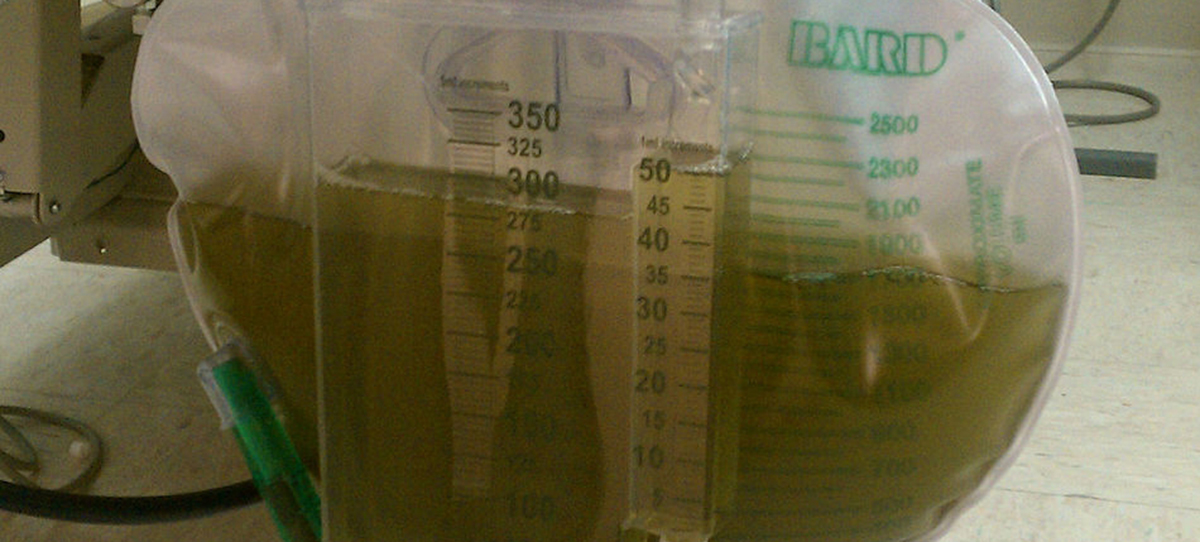Table of Contents
Dark Urine Because Of Liver Dysfunction
Persistent dark urine — whether it's orange, light brown, or Coca-Cola colored — can indicate liver disease, such as hepatitis, liver cancer, cirrhosis, and alcoholic liver disease. In this case, the darker color is caused by an excess of bilirubin, a pigment created during the liver's process of breaking red blood cells down. Liver disease, unfortunately, tends to become symptomatic only during more advanced stages, but the earlier you catch it, the earlier you will be able to seek treatment and the more favorable the outcome is likely to be.
Other tell-tale symptoms include a yellowing of the skin and eyes, and pale stools, along with fatigue, loss of appetite, an enlarged abdomen, nausea, and being more prone to bleeding and bruising.

Rhabdomyolys: Brown Urine
Rhabdomyolys, a condition that leads to the rapid breakdown of skeletal muscle, causes a characteristic dark-beer-like urine color. The urine of rhabdomyolys patients will test positive for blood, but microscopic analysis will demonstrate that no red blood cells are present.
While rhabdomyolys is a fairly rare condition, with around 26,000 people affected in the United States annually, it has many different underlying causes. They include hereditary muscle conditions, drug and alcohol abuse or long-term use of certain medications (notably Haloperidol), crush injuries, uncontrolled diabetes, snake bites, and Legionnaire's Disease.
While severe rhabdomyolys is accompanied by muscle pain and weakness and a range of other resulting symptoms, patients will often lack clear symptoms while the condition is mild. Dark brown urine may, therefore, be the first thing that alerts you that something is wrong, demonstrating that observing your urine color is more than worthwhile.
Gallbladder Problems: Dark Orange To Brown Urine
Cholecystitis, an inflammation of the gallbladder typically resulting when a gallstone blocks the cystic duct, can be acute or chronic. While the jaundice that cholecystitis causes will lead to a dark urine color, this won't be the first thing to alert you that something is wrong: cholecystitis starts with pain, pain that can become excruciating. Nausea and vomiting are also common.
Other Causes Of Dark Urine
Glomerulonephritis (kidney diseases), pancreatic cancer, pancreatitis, malaria, sickle cell disease, porphyria, and hemolytic anemia can also all lead to dark urine. With so many possible causes, not all of which come with clear and distinct symptoms, the message is clear — if you notice dark, brown, or nearly black urine once or twice and are quite certain that it was caused by foods, supplements, or dehydration, you can skip seeing a doctor. If the problem persists, however, you may be dealing with a serious medical condition. In nearly all cases, early diagnosis will lead to early treatment and, therewith, a more favorable prognosis.
Urine color may not be something we normally pay nearly enough attention to, but as you can see, it can play a key role in alerting you that something is wrong, allowing you to seek medical attention and getting the treatment that you need.
- Photo courtesy of frolicsomepl by Pixabay: pixabay.com/en/the-test-urine-container-urine-1006794/
- Photo courtesy of Rmosler2100 by Wikimedia Commons: commons.wikimedia.org/wiki/File:IMAG0466.jpg


Your thoughts on this